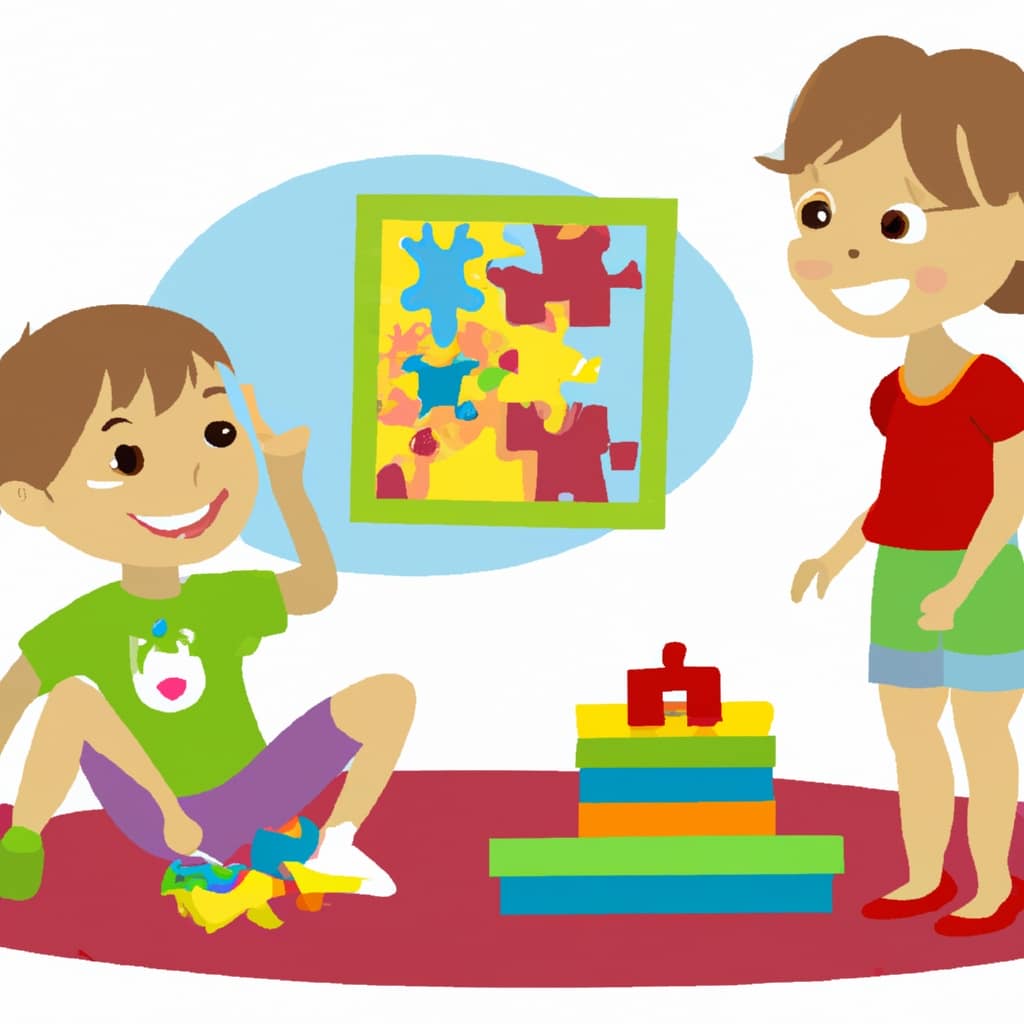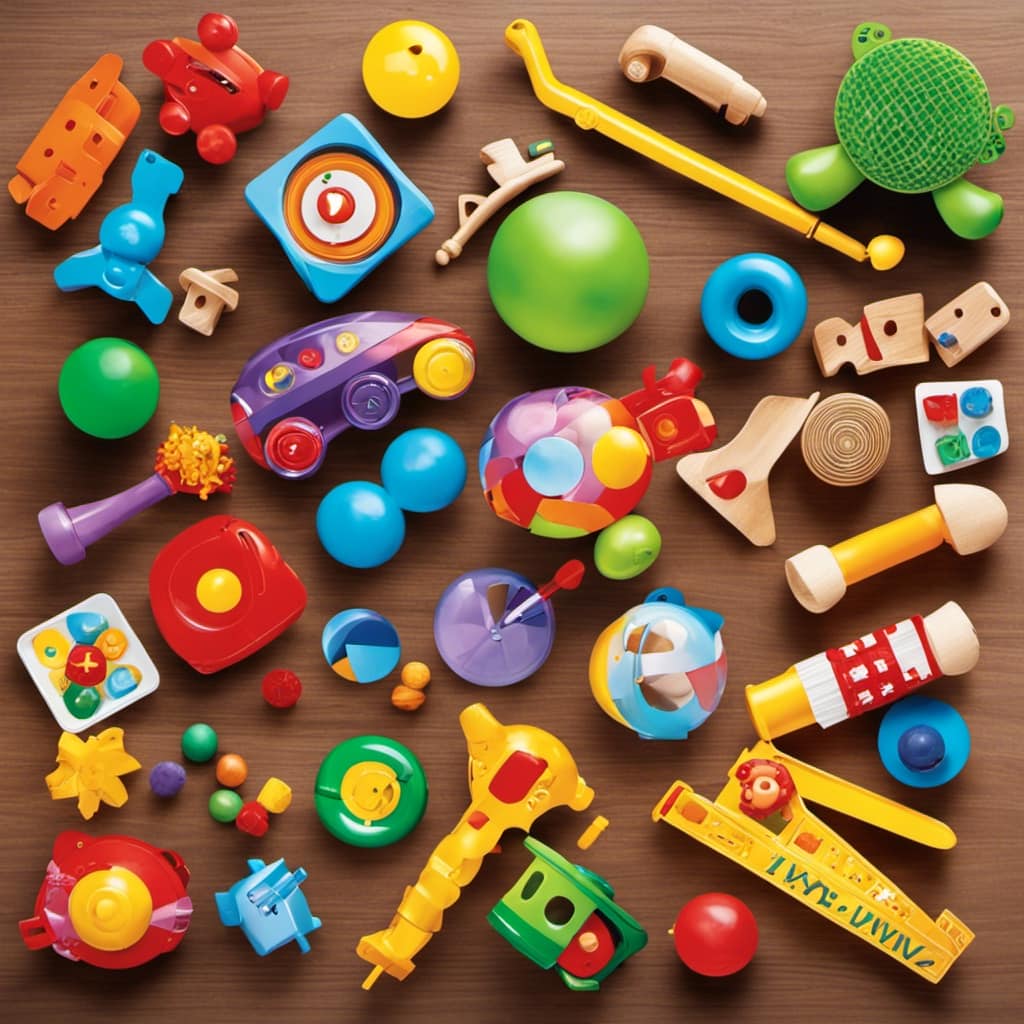As a researcher delving into the intricate world of child development, I have discovered the important role that parenting has in shaping a child’s growth.
Attachment styles and emotional bonds formed in early childhood play a pivotal role in shaping a child’s social and cognitive development.
Secure attachment fosters positive outcomes, while insecure attachment can lead to various challenges.
By exploring different parenting styles and the power of parental modeling, we can unravel the secrets to nurturing strong emotional bonds that lay the foundation for a child’s well-being and future relationships.
Key Takeaways
- Attachment styles formed through early interactions with caregivers significantly impact social and cognitive development.
- Different parenting styles have varying influences on attachment and overall development, with authoritative parenting promoting secure attachment and positive social relationships.
- Parental behavior and emotional attachment significantly impact a child’s overall development, with positive modeling leading to positive behavior in children.
- Building a strong emotional attachment is crucial for a child’s overall well-being and future relationships, leading to better social and emotional development and higher self-esteem.
The Role of Attachment Styles in Child Development
I believe that understanding attachment styles is crucial in comprehending how they shape a child’s development and overall well-being.
Attachment styles have been found to have significant impacts on various aspects of a child’s life, including academic performance and peer relationships. Research has shown that children with secure attachment styles tend to perform better academically. They are more likely to have higher self-esteem, better emotional regulation, and positive social relationships, which contribute to their academic success.

On the other hand, children with insecure attachment styles may struggle academically. They may experience difficulties in forming healthy peer relationships, which can affect their social and emotional development.
Therefore, it is important for parents and caregivers to foster secure attachment relationships with children, as it positively influences their academic performance and peer interactions.
The Influence of Parenting Styles on Attachment
Observing different parenting styles helps me understand how they can shape the attachment between caregivers and children. Parental responsiveness plays a crucial role in promoting secure attachment. When parents are attuned to their child’s needs, provide comfort and support, and respond promptly, children develop a sense of security and trust. On the other hand, inconsistent parenting can have a negative impact on attachment style. Inconsistency in responsiveness, discipline, and emotional availability can lead to insecure attachment, anxiety, and difficulties in forming healthy relationships. To emphasize the influence of parenting styles on attachment, I have created a table below:
| Parenting Style | Attachment Security |
|---|---|
| Authoritative | Promotes secure attachment, higher self-esteem, better emotional regulation, and positive social relationships. |
| Authoritarian | Can lead to insecure attachment, anxiety, aggression, and poor social skills. |
| Permissive | Results in poor self-regulation and difficulty with boundaries. |
| Neglectful | Serious negative consequences on attachment, emotional regulation, relationships, and behavior. |
Understanding the impact of parenting styles on attachment is vital in promoting healthy development and nurturing secure and meaningful relationships between caregivers and children.
The Impact of Parental Behavior on Emotional Bonds
Building a strong connection between caregivers and children is essential for fostering a sense of security and promoting healthy emotional well-being. The importance of positive parental modeling cannot be overstated. Children learn and model behaviors based on what they observe from their parents. When parents exhibit positive behaviors such as kindness and empathy, children are more likely to adopt those behaviors as well.
However, the impact of neglectful parenting on emotional bonds can be detrimental. When parents are neglectful, children may struggle to form secure emotional attachments. This can lead to difficulties in social interactions, emotional regulation, and behavioral problems. The emotional bond between parents and children significantly impacts a child’s overall development.

Therefore, it is crucial for parents to provide a nurturing and secure environment in order to promote healthy emotional bonds and ensure the well-being of their children.
The Power of Parental Modeling on Child Behavior
Watching how my parents behave has a significant influence on my own actions and behavior. As a child, I am like a sponge, absorbing everything around me, including the behaviors and actions of my parents. Here are three ways in which parental modeling shapes my future actions and behavior:
-
I learn by imitation: When I see my parents engaging in positive behaviors, such as kindness and empathy, I am more likely to adopt those behaviors myself. Their actions serve as a blueprint for how I should behave in different situations.
-
Negative behaviors can be mimicked: Unfortunately, negative behaviors displayed by my parents, such as aggression or substance abuse, may also be imitated by me. I may see these behaviors as normal or acceptable because that’s what I have observed at home.
-
Parental modeling has a lasting impact: The behaviors I witness from my parents during my formative years have a profound effect on my development and behavior. Their actions shape the way I interact with others, make decisions, and handle situations throughout my life.
The Significance of Emotional Attachment in Child Development
Experiencing a strong emotional connection as a child is crucial for my overall well-being and future relationships. The role of secure attachment in cognitive development cannot be overstated.

Research shows that children who have secure emotional bonds with their caregivers tend to have better cognitive outcomes. They have improved problem-solving skills, attention span, and memory.
On the other hand, the effects of insecure attachment on emotional regulation can be detrimental. Children who do not form secure attachments may struggle with regulating their emotions, leading to behavioral problems and difficulties in social interactions.
It is essential for caregivers to provide a nurturing and secure environment for children to foster secure attachment. This will promote their healthy development, both emotionally and cognitively, and lay the foundation for positive relationships in the future.
Building Secure Emotional Bonds: Key to Healthy Development
Fostering a strong emotional connection during childhood is crucial for my overall well-being and future relationships. Research shows that building secure emotional bonds has numerous benefits and promotes healthy development. Here are three key reasons why building secure emotional bonds is important:
-
Enhanced social and emotional development: Secure emotional attachments lay the foundation for better social and emotional skills. They contribute to higher self-esteem, stronger interpersonal relationships, and healthier coping mechanisms. Children with secure attachments are more likely to develop resilience and adaptability in the face of challenges.
-
Positive mental health outcomes: The quality of the emotional bond formed in early childhood significantly impacts future mental health. Secure attachments provide a sense of security and emotional well-being, reducing the risk of anxiety, depression, and other mental health issues.

-
Nurturing exploration and healthy relationships: Building secure emotional bonds provides a secure base for children to explore the world and form healthy relationships. When children feel emotionally connected and supported, they are more likely to engage in positive social interactions, build trust, and develop strong communication skills.
Promoting healthy attachment through nurturing interactions is crucial for a child’s overall development and long-term well-being.
Exploring the Effects of Parenting on Attachment Styles
Learning about the effects of different parenting approaches on attachment styles has given me valuable insights into how early interactions shape a child’s social and cognitive development.
Exploring the effects of parenting on attachment styles is crucial in understanding the long-term consequences of parenting on attachment. Research shows that secure attachment promotes better social skills and healthier relationships later in life.
On the other hand, insecure attachment can lead to difficulties in social interactions, emotional regulation, and behavioral problems. It can also affect problem-solving, attention, and memory.
Understanding the impact of parenting on attachment styles is essential for creating a nurturing environment that fosters secure attachment and promotes healthy development. By providing a secure and supportive environment, parents can positively influence their child’s attachment style, leading to better overall well-being and future relationships.

Understanding the Long-term Consequences of Parenting on Child Development
In the previous subtopic, we explored the effects of parenting on attachment styles, focusing on how different parenting styles can influence the development of secure or insecure attachments. Now, let’s delve deeper into the long-term consequences of parenting on child development.
Specifically, we will be understanding the link between parenting and cognitive development. Research has consistently shown that parenting practices and the quality of the parent-child relationship significantly impact a child’s cognitive development. Positive and nurturing parenting promotes cognitive skills such as attention, memory, and problem-solving abilities. On the other hand, insecure attachment, which often arises from inconsistent or neglectful parenting, can hinder the development of these cognitive abilities.
In addition to cognitive development, we will also be examining the effects of insecure attachment on problem-solving abilities. Children who have insecure attachments may struggle with problem-solving tasks due to difficulties in regulating their emotions and managing stress. Insecurely attached children may exhibit impulsive behaviors, have a limited ability to think flexibly, and struggle with finding effective solutions to problems. These difficulties in problem-solving can have long-term consequences on academic performance and overall cognitive development.
Understanding the impact of insecure attachment on problem-solving abilities highlights the importance of early intervention and support for children and their parents. By providing parents with guidance on nurturing secure attachments and promoting positive parenting practices, we can help improve cognitive development and problem-solving skills in children who may be at risk due to insecure attachment.
Frequently Asked Questions
How Do Attachment Styles Formed in Childhood Impact a Child’s Cognitive Development?
Insecure attachment in childhood can negatively impact a child’s cognitive development, including academic performance and problem-solving skills. Early attachment experiences play a significant role in shaping these cognitive abilities.
What Are Some Specific Behaviors Associated With Authoritative Parenting That Promote Secure Attachment?
Authoritative parenting promotes secure attachment by promoting independence and fostering emotional resilience. Behaviors such as setting clear boundaries, providing emotional support, and encouraging autonomy help children develop a strong sense of security and trust in their relationships.

How Does Permissive Parenting Affect a Child’s Ability to Set Boundaries and Self-Regulate?
Permissive parenting can negatively impact a child’s ability to set boundaries and self-regulate. It may lead to insecure attachment, emotional difficulties, and behavioral problems. Authoritative parenting, on the other hand, promotes secure attachment, empathy, kindness, and positive child behavior and social skills.
Can Neglectful Parenting Lead to Long-Term Emotional Difficulties and Behavioral Problems in Children?
Neglectful parenting can have long-term effects on a child’s emotional well-being and behavior. It may lead to difficulties in emotional regulation, social interactions, and behavioral problems, impacting their overall development.
How Does Positive Parental Modeling of Empathy and Kindness Influence a Child’s Behavior and Social Skills?
Positive parenting techniques, such as modeling empathy and kindness, greatly influence a child’s behavior and social skills. Research shows that children are more likely to adopt positive behaviors when they see them demonstrated by their parents.
Conclusion
In conclusion, the impact of parenting on child development is nothing short of extraordinary.
The attachment styles and emotional bonds formed in early interactions with caregivers have a profound influence on a child’s social and cognitive development.
Positive parenting practices that foster secure attachment can lead to remarkable outcomes, including better social skills, healthier relationships, and overall positive development.

Conversely, insecure attachment can have detrimental effects, hindering social interactions, emotional regulation, and behavioral functioning.
Therefore, it is crucial for parents to understand the immense power they hold in shaping their child’s future through nurturing emotional bonds and providing a secure base for exploration and growth.










